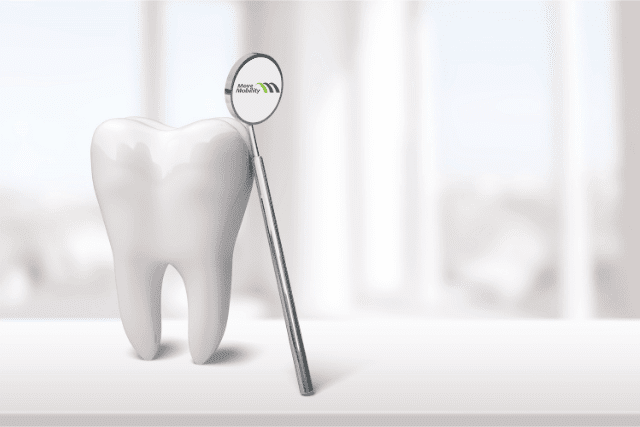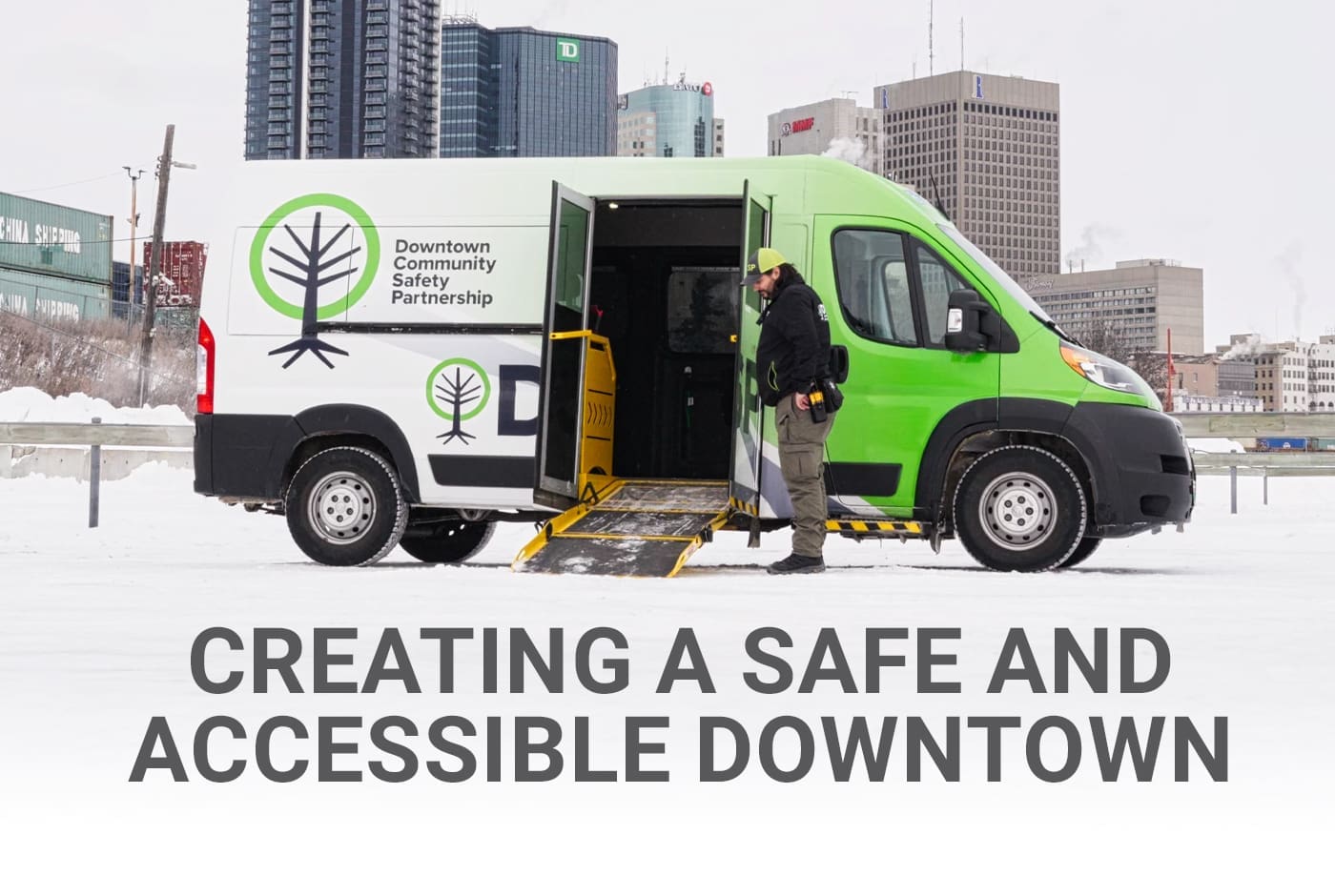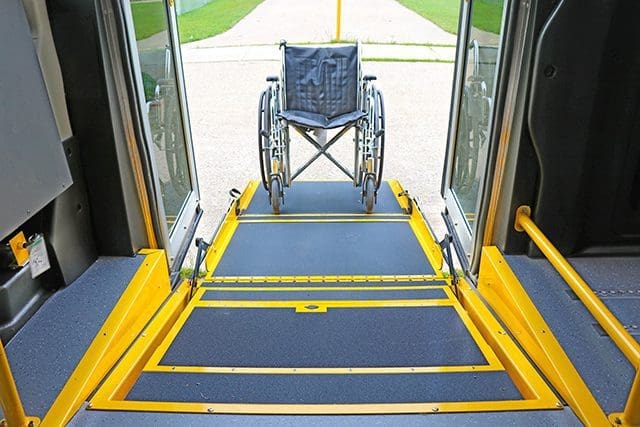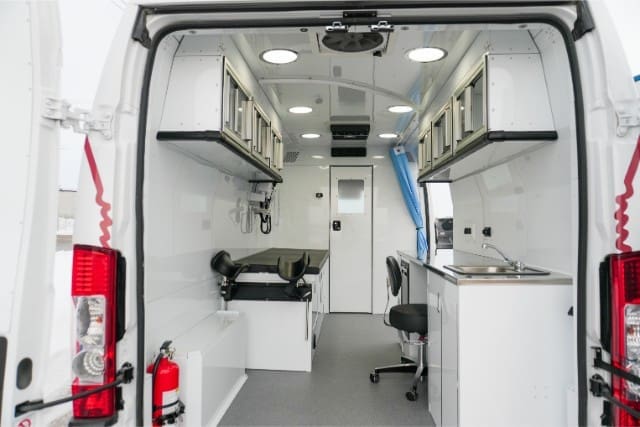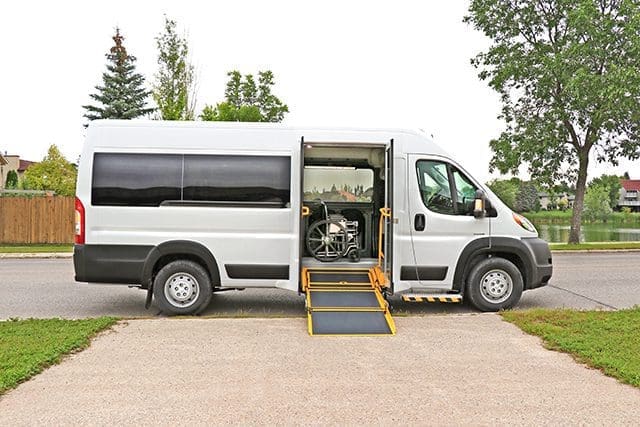In Canada, barriers to dental care are everywhere. Mobile dental clinics are stepping up to solve a big problem: people can’t always reach the dental care they need.
- Clinics are too far
- Costs are too high
- Hours of operation don’t fit into busy lives
This gap turns preventable issues into painful, costly emergencies for many, especially in underserved communities. The result? People suffer without proper dental care, kids might be bullied in school, and organizations like yours are left searching for real solutions. What if there was a way to bring high-quality dental care straight to the people who need it most?
It’s frustrating, isn’t it? Knowing there’s a gap and not having the tools to close it. At MoveMobility, we understand what you’re facing. For over 20 years, we’ve been helping organizations like yours overcome barriers to healthcare and transportation. Our mobile medical vans and mobile dental clinics are designed with one goal: to bridge gaps in healthcare and save lives.
Here’s what this guide covers: We’ll break down what a mobile dental clinic is, how it works, and the many ways it helps close gaps in dental care access. If you’re new to the concept or considering your next steps, you’ll leave with the knowledge you need to make informed decisions.
What are mobile dental clinics?
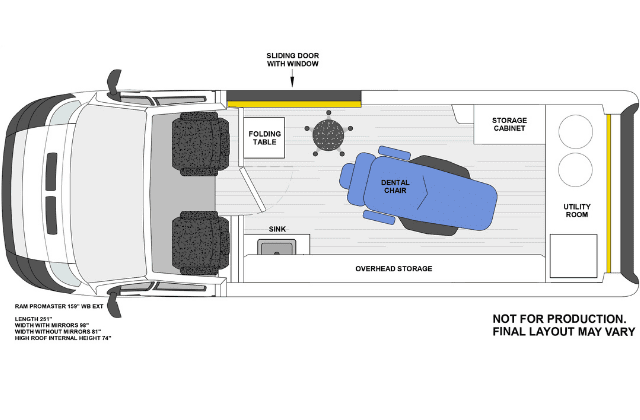
Mobile dental clinics serve as fully-equipped dental offices on wheels. They aim to deliver dental care directly to communities that lack easy access to traditional clinics.. In Canada, where many people live in rural or underserved areas, mobile dental clinics are a lifeline for individuals who would otherwise go without care.
Think about it: What happens when someone can’t get to a dentist? A small cavity turns into a painful infection. Gum disease worsens, leading to tooth loss or even serious health problems like heart disease. For families already struggling to make ends meet, the costs of emergency care become overwhelming. This is the gap mobile dental units aim to close.
How can mobile dental units help in Canada?
Getting dental care in Canada isn’t easy for everyone. Many people face serious challenges that make seeing a dentist almost impossible. Here are some of the biggest problems:
1. Living in rural areas
- Millions of Canadians live in rural or remote areas.
- Some communities don’t even have a dentist nearby.
- Getting to a dental clinic often means driving hours—or not going at all.
How mobile dental units help: These clinics come directly to rural towns and remote areas. They bring the care directly to the patients—no long trips are needed.
2. Lack of reliable transportation
- Many people don’t have a car or live too far from public transit.
- For others, mobility issues make travel difficult.
- Transportation becomes a big reason people skip the dentist.
How mobile dental clinics help: Mobile dental units park in neighborhoods, schools, and workplaces. Patients don’t have to go far—they just show up when the clinic is close by.
3. Dental care is too expensive
- Dental insurance isn’t universal in Canada, and not everyone has it.
- Regular checkups and treatments can cost hundreds or even thousands of dollars.
- Many people avoid the dentist until there’s an emergency.
How mobile dental vehicles help: Many mobile dental vehicles work with community programs to offer low-cost or free services. This makes care affordable for everyone, no matter their budget.
Skilled mobile dental hygienists and dentists operate these mobile dental units, delivering services ranging from routine cleanings to advanced treatments. They’re both filling teeth and the gap in Canada’s healthcare system.
For many people, a mobile dental clinic is about dignity, comfort, and hope. It’s a chance to smile without pain, eat without worry, and live a healthier life.
How do mobile dental vehicles operate?
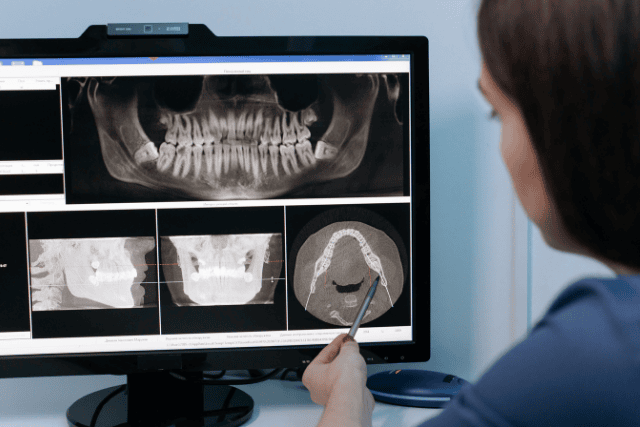
Mobile dental clinics are perfect for bringing dental care to remote areas of Canada, such as small towns in Northern Ontario or isolated communities in the prairies. Let’s take a look at how they work and what’s inside them.
What’s inside a mobile dental unit?
Dental chairs: Just like at a regular dentist’s office, dental chairs are where patients sit for their exams and treatments.
X-ray machines: Mobile dental units are equipped to take X-rays on the spot, helping dentists figure out what’s going on quickly.
Sterilization area: Keeping tools clean and safe is super important, and every mobile dental clinic has a station for this.
Storage: All the supplies, like dental tools and cleaning products, are neatly stored and ready to use.
What services can you offer with these vehicles?
Cleanings and checkups: Mobile dental hygienists help keep teeth healthy with regular cleanings and basic care.
Fillings, root canals, and other small dental procedures: You can treat cavities in the mobile dental unit.
X-rays and screenings: Dentists can check for deeper issues quickly and easily.
Oral health education: Mobile dental hygienists often teach patients how to take better care of their teeth at home.
What types of vehicles can be converted to mobile dental vehicles?
You can transform various types of vehicles into mobile dental clinics based on your program’s needs and your planned destinations. Here’s a simple look at the main options:
RVs: These vehicles are spacious and can be converted into dental clinics for areas that need extra room or equipment. They’re great for checking out remote places or when you’re hanging out in one spot for a while.
Vans: Vans are smaller and more flexible than some of the other options, making them a popular choice for mobile dental clinics. Drivers easily maneuver and park these vehicles, especially in busy towns, rural areas, or cities. This ease of use makes them a suitable choice for programs that prioritize mobility and quick access to care.
Buses: Buses can be transformed into mobile dental units that handle larger setups, like having numerous dental chairs. People sometimes use them to serve larger groups, such as schools or community events.
Trailers: Trailers can also be customized into mobile dental clinics. People usually park and set up these at specific locations for a period of time. They need a towing vehicle to move them, which adds another consideration.
Each of these options works in different situations. Mobile dental clinics, in any format, are important for bringing care to the people who need it most, whether in rural areas or urban neighborhoods.
Overcome dental care barriers with mobile dental units
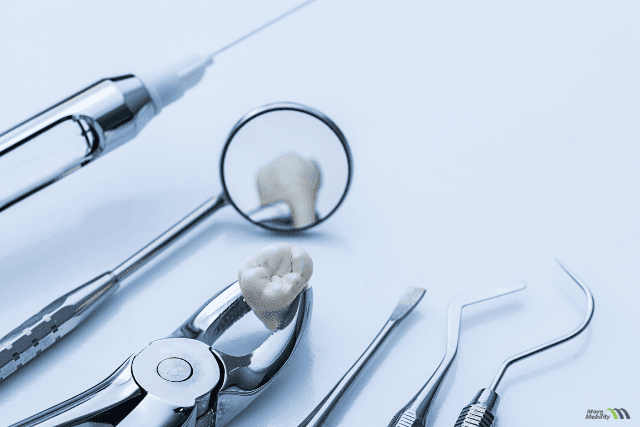
You came to this article because your organization is looking for a way to solve the challenges people face in getting dental care in Canada. Maybe it’s because of a lack of dentists nearby, trouble with transportation, or the high cost of care. Whatever brought you here, you’re searching for a better solution.
After reading, here’s what you learned:
- What mobile dental clinics are and how they bring care to those who need it.
- The barriers Canadians face when it comes to accessing dental care.
- How mobile dental clinics operate and the equipment and services they offer.
- Various types of vehicles can transform into mobile dental units, actively serving different communities and meeting their dental care needs.
At MoveMobility, we’re proud to support communities across Canada, and we’re here with you every step of the way. If you’re ready to learn more about mobile dental clinics, click the button below to talk to one of our mobility experts.
Not ready to talk yet? That’s okay! Check out our other resources to learn more when you’re ready.
Start with our article on mobile health funding. This article will provide some insight if your organization is struggling to find funding.
FAQ
Q: How long does it take to set up a mobile dental clinic?
A: Setting up a mobile dental clinic usually takes 15-30 minutes, depending on the equipment and services offered. Once parked, the clinic is ready to operate just like a regular dental office.
Q: Can a mobile dental clinic run on electricity in remote areas?
A: Yes, most mobile dental clinics are equipped with generators for off-grid operation. This ensures they can provide care even in areas without direct access to electricity.
Q: How far can a mobile dental clinic travel in a day?
A: Mobile dental clinics travel hundreds of kilometers each day to effectively reach both urban and remote communities.
Q: Can mobile dental clinics operate during extreme weather?
A: Yes, most mobile dental clinics are insulated and climate-controlled to operate in all weather conditions. This makes them reliable for year-round service in Canada’s varying climates.
Q: How are supplies stored and restocked in a mobile dental clinic?
A: Supplies are organized in secure storage compartments within the clinic. Typically, you restock at a central location between trips to ensure we fully stock everything for each visit.


